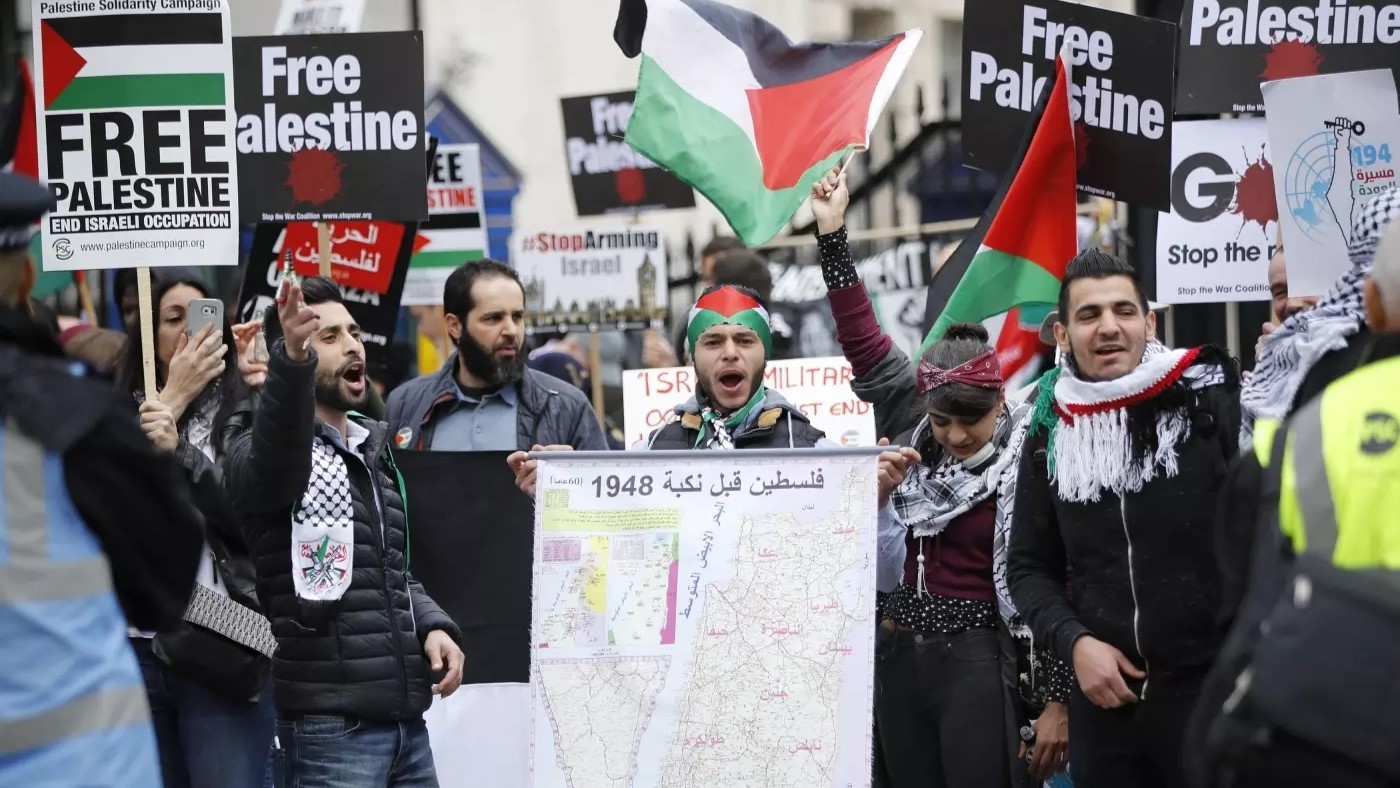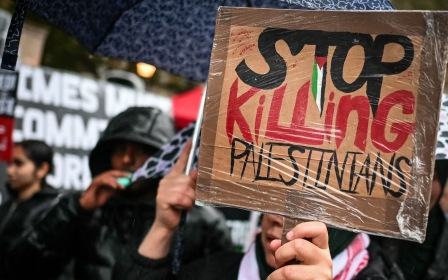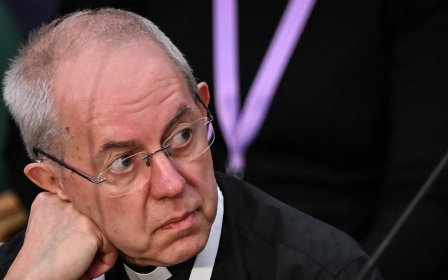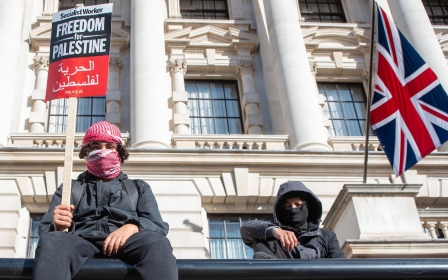'From the river to the sea': What does the pro-Palestine chant actually mean?

At demonstrations across the world in support of the Palestinians and in opposition to Israel's ongoing assault on Gaza, one refrain can regularly be heard: "From the river to the sea, Palestine will be free."
The slogan has been around for decades among Palestinians and pro-Palestinian campaigners and refers to liberating the territory that exists between the Jordan river and the Mediterranean Sea in historic Palestine.
But many Israelis and supporters of Israel have claimed that the chant effectively calls for genocide and implies the destruction of Israel.
In mid-October, police in Vienna banned a pro-Palestine protest on the basis of the chant, claiming it was a call to violence.
And while London's Metropolitan Police said they would not be arresting protesters who chanted the slogan at a pro-Palestine protest over the weekend, the UK Home Secretary has publicly stated that she believes police should intervene, suggesting that the chant is an "expression of a violent desire to see Israel erased from the world".
New MEE newsletter: Jerusalem Dispatch
Sign up to get the latest insights and analysis on Israel-Palestine, alongside Turkey Unpacked and other MEE newsletters
The origins of the phrase date back to the original debate over partition in the 1940s.
As the British Empire ended its mandate controlling historic Palestine, the then-fledgling United Nations proposed partitioning the territory into Jewish and Palestinian states.
This plan, which would have seen 62 percent of the territory under Israeli control, was fiercely rejected by Arab leaders at the time. In the aftermath of the British withdrawal, war broke out, which saw more than 700,000 Palestinians driven from their homes in what became known as the Nakba, or "catastrophe".
Following the war, the State of Israel was declared, while the West Bank remained under Jordanian control and Egypt controlled the Gaza Strip. Following the 1967 war, these territories would come under Israeli occupation.
Since the creation of the Palestine Liberation Organisation (PLO) by diaspora Palestinians in 1964, the position on Palestinian nationhood - and Israel - has changed repeatedly.
Follow Middle East Eye's live coverage for the latest on the Israel-Palestine war
Until 1988, the official position of the PLO was to call for the creation of a single state in historic Palestine that would encompass all its historic territories.
In its 1964 charter, the PLO said this state would be an "Arab homeland bound by strong national ties to the rest of the Arab countries and which together form the large Arab homeland". It also denounced Zionism as "a colonialist movement".
The charter also stated that "Jews of Palestinian origin are considered Palestinians if they are willing to live peacefully and loyally in Palestine."
By the 1970s, however, the PLO leadership gradually changed its stance, and by 1988 had officially adopted the principle of a two-state solution.
This stance has been rejected by other Palestinians factions, including the leftist Popular Front for the Liberation of Palestine (PFLP) - who advocate a secular, socialist state for all residents of historic Palestine - and Islamist movement Hamas, which called for an Islamic state.
Since 1993, the official position of much of the international community has chimed with the PLO in calling for the creation of a Palestinian state on the territory occupied during the 1967 war, with East Jerusalem as its capital.
Although supported by many Palestinians, the prospect of a Palestinian state on just 22 percent of historic Palestine has been seen by many as an historic injustice, with academic Edward Said describing it as "capitulation" by the PLO.
As Israeli settlements have been built in increasing numbers in the West Bank, and the prospects for the success of peace negotiations have retreated, increasingly the discussion has returned to the question of a single state in which Israelis and Palestinians share equal rights, "from the river to the sea".
Why is it controversial?
Supporters of Israel have, since its creation, argued that the maintenance of a Jewish-majority state is necessary for Jewish security after the Holocaust - and that the establishment of a secular state risks undermining this.
Writing for the Jewish outlet Forward in 2018, historian Maha Nassar pointed out that there had never been an "official Palestinian position calling for the forced removal of Jews from Palestine" and that the slogan had never meant this.
"It was part of a larger call to see a secular democratic state established in all of historic Palestine," she argued. "Palestinians hoped their state would be free from oppression of all sorts, from Israeli as well as from Arab regimes."
However, Nassar acknowledged that in such a state - one which did not privilege Jews over non-Jews and where they risked having minority status - many would no longer wish to remain.
"To be sure, a lot of Palestinians thought that in a single democratic state, many Jewish Israelis would voluntarily leave, like the French settlers in Algeria did when that country gained its independence from the French," she said.
"Their belief stemmed from the anti-colonial context in which the Palestinian liberation movement arose."
Middle East Eye delivers independent and unrivalled coverage and analysis of the Middle East, North Africa and beyond. To learn more about republishing this content and the associated fees, please fill out this form. More about MEE can be found here.




